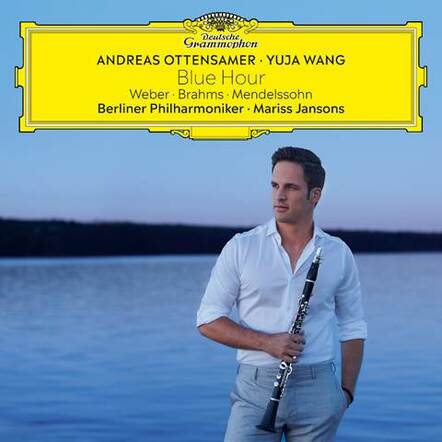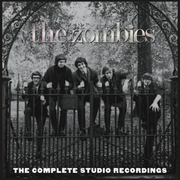New York, NY (Top40 Charts) Austrian clarinettist
Andreas Ottensamer has joined forces with Chinese pianist Yuja Wang to record an album of works by composers of the Romantic era. Blue Hour, set for release on March 8 by Deutsche Grammophon/Universal Music, features some of the jewels of the repertoire including Brahms's Intermezzo in A major, Mendelssohn's Songs without Words - arranged for clarinet and piano by Ottensamer - and Weber's virtuosic Grand Duo concertant. The album reveals Ottensamer to be not just a sensitive and responsive chamber partner, but also a brilliant soloist, as he gives a dazzling performance of Weber's First Clarinet Concerto, recorded with the Berliner Philharmoniker and Mariss Jansons. Pre-order Blue Hour HERE.
Andreas Ottensamer marks the renewal of his exclusive relationship with Deutsche Grammophon artist with the release of Blue Hour. Joining him on his "comeback" album is star pianist Yuja Wang, of whom he says, "She's a close friend and a wonderful musician."
Ottensamer was keen to record works that have particular personal significance for him. Brahms has long been his favourite composer and the clarinettist is especially fond of his piano music so an arrangement for clarinet and piano of the Intermezzo, op.118 no.2 was an obvious choice. As Ottensamer says, "Towards the end of his life Brahms met the clarinettist Richard Mühlfeld and was inspired to write a number of works for the instrument. I feel there are a number of connections here and that transcriptions for clarinet of these solo piano works work well."
Mendelssohn's piano music too is very important to Ottensamer. "I think Mendelssohn has a very strong sense of structure," he explains. "He wrote in a meticulous manner, which I really admire, but he also has the power to move you very deeply, as he does in the Songs without Words, some of which I've arranged for clarinet and piano for this recording. There's a directness and profundity to the emotion they convey. I think listeners will feel it when they hear these pieces."
What fascinates Ottensamer about these piano works is that, despite their differences, "they all have a wonderful songlike character". This led him to the idea of placing the Songs without Words alongside Weber's First Clarinet Concerto, a work which, as he emphasises, has "beautiful cantabile, lyrical parts" alongside passages of breathtaking virtuosity.
"The
Weber Concerto was recorded live, which was a really emotional experience," notes Ottensamer, who is principal clarinet of the Berliner Philharmoniker. "Some pretty powerful feelings take over when you're up there on stage, especially when you're playing with your own orchestra." It meant a great deal to him to perform as a soloist with his colleagues: "Of course I play with them all the time, but usually I'm sitting within the ranks of the orchestra." Another key factor here was working with Maestro Mariss Jansons: "He's a wonderful conductor with a dynamic personality, and he's also a good friend. It was incredibly inspiring to make this recording with him."
The Romantic repertoire is especially close to Ottensamer's heart, who says he feels completely at home when performing works from this period. His main concern is to bring his own character and experiences to the music and to share his interpretations with others. "That way they understand something about who you are as a person as well when they see you perform," he observes. "Sharing that sense of yourself through a recording is a huge challenge, of course, but a really exciting one!"
























